#maurice mossovich
Text
April 4, 2021: The Great Dictator (Review)
It's a 100%. Haven't given one of those in a while!
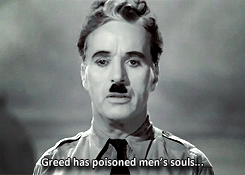
Here's the thing: this is a great film. Hang the comedy bit, even though it's also a very funny film! This is a great movie, no questions. I actually have no problems with it, and barely any actual commentary, gonna be honest. Fact of the matter is, it's essentially perfect in my book. Maybe it's not actually flawless...but I'm having a lot of trouble seeing any flaws. If you've got any, PLEASE tell me! I'm curious, really.
But OK, why am I even writing this, then? Because I want to close out this Golden Era of Comedy with a post about the end of its biggest star, Charlie Chaplin. Because from here...things are all downhill. And the seeds of that journey can be seen in this film. So, in other words, this post is a film history post. WELCOME TO SCHOOL

Yeah, sorry. If you like these history posts, I hope you like this one! And if not...yeah, that's entirely fair. Go ahead and skip this one! The next movie is Arsenic and Old Lace, so I'll save you the trouble of scrolling down! See you next time!
...
...OK, you still here? Cool, let's do this. Go ahead and "keep reading" for more on Chaplin after this film!
Review: Charlie Chaplin

Chaplin's walking on air, at least in terms of his film career! The Great Dictator will become his best-received film critically, and was a smash-hit in the United States. But that's pretty heavily contrasted with the reception of, well, Chaplin himself. Because unfortunately for him, Chaplin's ideologies would soon VIOLENTLY clash with that of his adopted country of the United States.
First things first, his love life was a mess, as was typical for the film star. His latest significant other was actress Joan Barry, and they separated bitterly (AKA, the only was Chaplin separates from anybody), after having a child together. This relationship would begin the downfall of Chaplin's image, starting in 1942. And that would be due to one of the most irritating, shitty dudes in the history of the FBI: J. Edgar Hoover.

Hoover HATED Chaplin, mostly because he was suspicious of him, as he was with EVERYBODY. Fuck Hoover, by the way, dude was a monster. He was also an INSANE patriot, bordering on straight up nationalism. But his hatred of Chaplin revolved around the fact that Chaplin's views were...controversial. I mean, Modern Times was an anti-industrialist film, and that's what the USA was ALL ABOUT at the time. And then, there's...one more thing. I'll get there.
Hoover launched a smear campaign against Charlie, and the Barry case was saddled with an additional allegation: violation of the Mann Act, which stated that it was illegal to transport women across state lines for sexual reasons. It was an attempt to stifle prostitution, and part of a massive moral panic of the time period. It was a bullshit charge, and Chaplin escaped it in trial. But damage had been done to his reputation, and Charlie was about to make it worse.
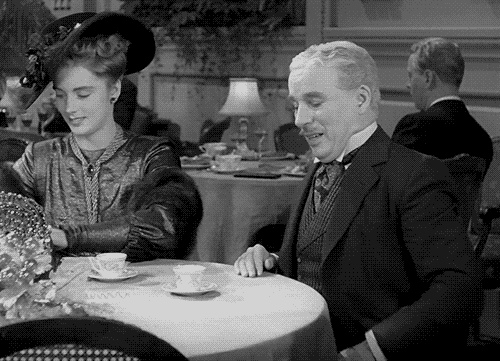
Shortly after, in 1943, Chaplin would meet his last wife, Oona O'Neill. She was 18, he was 54. Fuckin' OOF, dude. And in 19 years, the two would have EIGHT CHILDREN JESUS FUCKING CHRIST CHAPLIN!!!
Anyway, other than this positive development, the Barry trial had beaten the shit out of him, will-wise. But he began developing a new ambitious film project in 1946, which was called Monsieur Verdoux. This was a black comedy about a bank clerk/serial killer that killed women for money. Which is obviously pretty controversial in a moral panic-stricken America, but that was made worse by Chaplin more overtly expressing his political views...which were violently anti-capitalism! In post-World War II America!
Uh-oh.
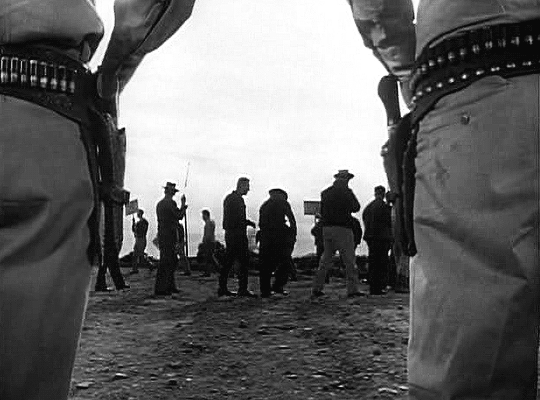
In 1947, with the release of Monsieur Verdoux, the film was legit booed at the premiere in the USA. Fuck. Tensions finally came to a head, and Chaplin was "outed" as a filthy, filthy commie! And I put "outed" in quotes because, well...he wasn't. Sure, Chaplin was against capitalism and military nationalism, as well as sympathizing with communist ideals in some cases. He was also friends with suspected communists, and with Soviet diplomats. And that shit's barely OK NOW amongst a pretty big proportion of people in the country. In 1947? WAY FUCKIN' WORSE.
Chaplin was "dangerous and amoral" according to the FBI, and he probably believed in equal rights for minorities too, the FILTHY FUCKIN' COMMIE!!! But, yeah, he was targeted by Joseph McCarthy and the House Un-American Activities Committee, and was nearly listed as one of the Hollywood Ten, a group of filmmakers blacklisted from Hollywood for alleged communist activities. Chaplin escaped that, but was still a major target for the Red Scare.
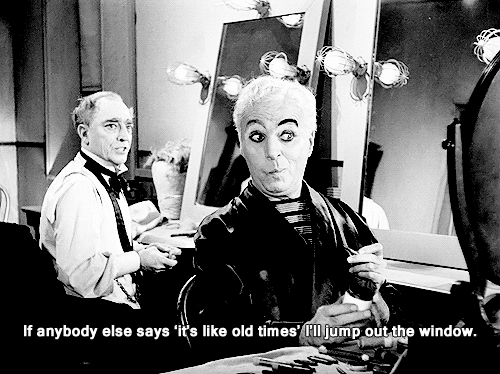
Chaplin, not giving a fuck as always, now decided upon a new project. Limelight was a semi-autobiographical film, in which he played an aging former vaudeville actor who had lost his popularity and fame, and falls in love with a younger woman. On the nose as always, Chaplin. Also, that's Buster Keaton in the GIF up there! Only time the two ever appeared on screen. Neat, huh?
Chaplin went home to the UK for the film's well-publicized premiere in 1952. And that's when the US Attorney General STRUCK, revoking Chaplin's VISA, and trapping him overseas permanently. Chaplin was banned from the United States, through really shitty underhanded tactics. Fuck, man. Worst part is, it's since been proven that there was no good justification for the VISA to be revoked. But the damage was done, and Chaplin willingly cut his ties with the United States, having been spurned by his adopted country for years.
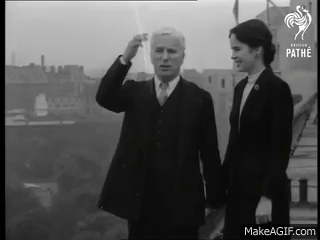
Loved in Europe and hated in America, Charlie continued making films, with his next film being another semi-autobiographical parody called A King in New York. He also came out not as a communist, but as a straight-up anarchist! He hated government altogether at this point, and it's hard to blame the guy. He really did get screwed. But, ironically, his love life was now quite stable, and his marriage with Oona was happy, by all accounts.
His films were banned in the United States, and Chaplin banned them right back, not releasing his films there, and preventing American journalists from attending its premiere. But even ten years later, Chaplin's filmography began to re-emerge for movie audiences, and his popularity began to rebound. The man was just that good, what can I say? Chaplin made a romantic comedy in 1967, called A Countess from Hong Kong, and starring Marlon Brando of all people! It was his first color film, and...it did NOT go well with audiences, ANYWHERE. It just wasn't well-received, and that film would be Chaplin's last.

In 1967, Chaplin had his first stroke of many. He continued his marriage with Oona, and even continued making another film called The Freak, an ambitious project from what's known about it. Basically, it was about a South American girl with wings, which is interesting. In 1972, after 20 years away, Chaplin was welcomed back to the United States with open arms, and was given an Honorary Academy Award for his insane contribution to the medium since the Golden Age of Hollywood. He was given a 12-minute standing ovation, the longest ever given at an Academy Award ceremony.
Still planning on making his film, he returned home. But the film went on a permanent hiatus by 1977, by which time his health had badly declined. On Christmas Day, 1977, Chaplin was found dead, having suffered a stroke in his sleep. He was 88 years of age, and was buried two days later in Switzerland. And THEN...he was dug up.
Yeah, DUDE'S GRAVE WAS FUCKIN' ROBBED! A couple of guys held Chaplin's corpse for ransom, which didn't work out for them, and he was reburied a few days later, this time in a reinforced concrete vault, where his remains remain to this day.
youtube
Charles Spencer Chaplin is one of the greatest actors and filmmakers of his time, and didn't deserve the guff he got from the government. The guff he got from his wives...eh, that he probably did deserve, not gonna lie. Dude wasn't the best husband, or the best dad to at least three of his kids. But in an ongoing effort to separate the art from the artist, Chaplin needs to be appreciated for the mountain of talent that he was, and his films will make him immortal in the annals of film history. Long live the Tramp.
But with him and his influence, the film industry had a place to evolve from, especially in terms of comedy. After The Great Dictator, some comedies felt the freedom to take a bit of a darker tone. And from here on out, we're splitting the timeline by genre, tracking comedy films by the evolution of their respective genres. And we start in 1944, with a film about...MYURDERRRR!!! And sweet old ladies!
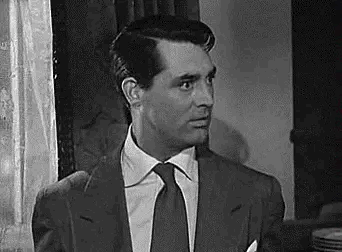
April 5, 2021: Arsenic and Old Lace (1944), dir. Frank Capra
#the great dictator#charlie chaplin#paulette goddard#jack oakie#henry daniell#reginald gardiner#billy gilbert#maurice mossovich#user365#365days365movies#365 days 365 movies#365 movies 365 days#365 movies a year#comedy april#useraina
4 notes
·
View notes
Text
April 4, 2021: The Great Dictator (1940) (Part One)
So, Charlie’s been having an...interesting few years.
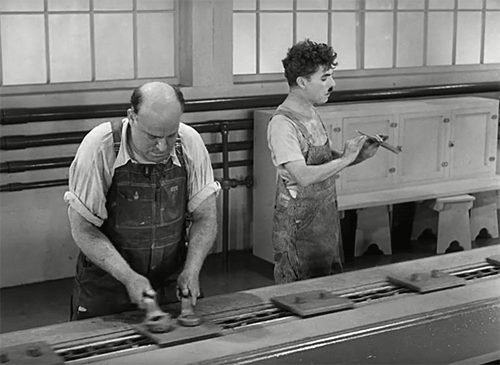
His marriage to Lita Grey has resulted in children, and a BITTER-AS-FUCK divorce, with Grey alleging that Chaplin had subjected her to “sexual perversions”. Other than the whole “she was 16, he was 35″ thing, which is...bad, obviously, Chalin was also a fan of orgies, fondling, and...pies. Yeah. Pies. Warning here, the next paragraph is...uncomfortable.
Dude would allegedly audition actresses having then sit on a couch, strip naked for him, and then he’d grope them on said couch. Then, he’d have them stand up against the wall, and he’d...well, he’d throw pies at them. Yeah. Um. He, uh...yeah.

I know, Matt Mercer, I know. And Hollywood agreed, because they didn’t really see to care? This info, amongst other stuff that I can’t seem to find out more about, was enough for grounds of divorce against Chaplin, and Lita Grey was gone from his life, taking the kids and a lot of money with her.
Film fame continued for Chaplin, though, and his 1927 film The Circus was a huge hit. But now, the “talkie” had been invented, and Chaplin HATED it. He believed that it was an unartistic addition to the medium, eliminating the need for his pantomiming. And, uh...he was technically right about that last point. He chose not to give the Tramp a voice, and made the film City Lights, which came out in 1931, and is considered one of his greatest films.

But the writing was VERY MUCH on the wall at this point, and silent films were a thing of the past. Still, City Lights did really well, and was Chaplin’s favorite of his films. Then, in 1932, he met Pauline Goddard (who was 21), and she would eventually become his third wife. He made his next major (still silent) film, Modern Times, in 1936, and it didn’t do quite as well. That’s because Chaplin had started to become more politically conscious, and used the film to make commentary on the industrialization of the USA, which he disliked. And that, interestingly enough, was a sign of the end for Chaplin.
Still, the film was good, as was still popular then and now. But in the years to follow, something else would rear its head and plague Chaplin...something with the same mustache.
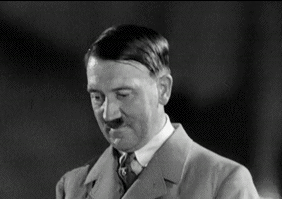
Hooooooo boy. Yeah, Hitler was rising to power in the 1930s, and Chaplin fuckin’ HAAAAAAAATED HIM. At the time, remember, Hitler’s fascist policies definitely weren’t universally derided, and he didn’t show his true monstrous colors in the early 1930s. But, Chapin still understandably disagreed with his politics and character, which was interesting for a few reasons. The two were bourn FOUR DAYS APART FROM EACH OTHER, had similar rags-to-riches origins, and both used that same toothbrush mustache. But Hitler was a feverish militaristic nationalist dictator, and Chaplin was...not that.

However, this would inspire Chaplin’s next ambitious film, considered to be one of his greatest films ever, and his first ever talkie film. And one that would age interestingly, considering what would come afterwards. In 1939, Chaplin began making this film, the United Kingdom declared war of Germany, and Europe became embroiled in the Second World War. And then, in 1940, Chaplin’s controversial (at the time) film, The Great Dictator was released. And...oh BOY, this will be Chaplin’s high and low point, lemme tell you.
But enough history (for now)! Let’s jump into this movie; I’m very excited! SPOILERS AHEAD!!!
Recap (1/2)
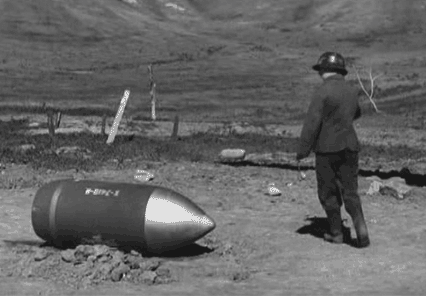
WAR!!! A world war has ended, and another is about to begun! The small (fictional) country of Tomainia is preparing for war by testing their gigantic anti-aircraft gun, Big Bertha. Helping with these efforts is a Jewish Barber (Charlie Chaplin), and YES. THAT IS HOW HE’S CREDITED. After some comedic hijinks with the gun, and with one of the large shells, enemy aircraft is sighted ahead.
The Barber gets aboard another anti-aircraft gun (which he has no control over), but soon falls off of it. He’s directed into the trenches with the others, and is given a grenade, which he has no idea to use, and Chaplin shows that his physical comedy is as funny WITH sound as it was without.
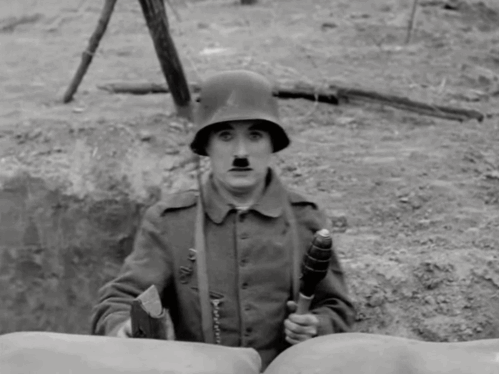
On the battlefield, the Barber encounters and rescues a downed pilot, Commander Schultz, and helps him back t his plane as the enemy approaches. They get on the plane together, only for the pilot to repeatedly faint in mid-air. In the process, they begin to fly upside down for a period, and once again, Chaplin shows that he’s just as funny speaking as he was silent.
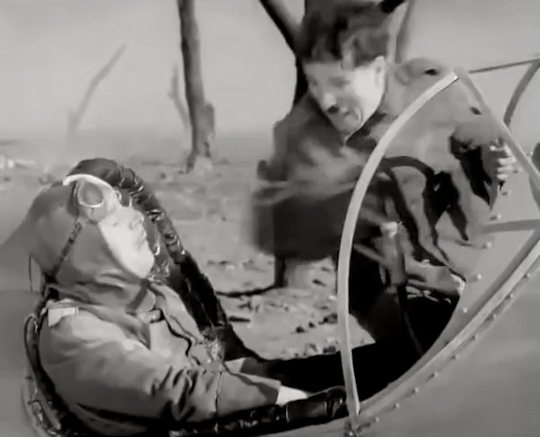
Despite their attempts, the pair crash as the plane runs out of fuel, but both men survive. The country has lost the war at this point, and the Barber is now unconscious and brought to a hospital. 20 years pass, and he’s finally able to leave, unaware of how his country of Tomainia has changed in the process. Now, they are ruled by a ruthless dictator, Adenoid Hynkel (Charlie Chaplin).
And i case you were wondering what the phrase “on the nose” actually meant...GODDAMN, this is an on-the-nose parody of Hitler. I mean, it’s very funny, of course, but HOT DAMN is it not even a little bit subtle. Also, living in a post-Trump world...Jesus, this is eerie. Anyway, the other reason this film is great is the fake German. And yeah, honestly, this is a very funny scene, even with the dark undertone, and the knowledge of what would be to come in World War II under Hitler’s regime.
youtube
Alongside his primary aides, Minister of War Herring (Billy Gilbert) and Secretary of the Interior (and Minister of Propaganda) Garbitsch (Henry Daniell), he makes a speech that’s clearly a parody of Hitler’s speeches. He also namedrops the Jewish population in the speech, which immediately makes them a target by his stormtroopers. This is noted by Mr. Jaeckel (Marice Mossovich), an elderly Jewish man who lives in the ghettos of Tomainia.
Mr. Jaeckel bemoans the fate of the country under Hynkel’s rule, and also notes the fate of those like his tenant, a young woman named Hannah (Paulette Goddard) who lost her parents since the last war. He also mentions the Barber, who writes every few weeks to say that he’ll be back soon. Just then, the Barber actually DOES wake up, completely unaware of what’s occurred in the last few years.

He heads to his barber shop, which has been boarded up, with the word “Jew” painted on the boards. Did I mention that this is a very on-the-nose satire? Anyway, he attempts to reopen his shop, only to be savaged by stormtroopers following Hynkel’s orders to control the ghetto. He fights back against two of them, and is saved by Hannah, who had attempted to stand up to them earlier with little success. They bond over this, and become friends.
But Hynkel’s savaged even more by a crowd of stormtroopers next, and they grab him with the intent to hang him from a lamppost, only for him to be saved by Commander Schultz, the pilot from the plane! He guarantees that he will never be attacked again, and that courtesy extends to his friends. He barber reopens his shop, and begins to fall in love with Hannah in the process.

Back to Hynkel. He’s enduring Herring’s introductions of military technology, including a bulletproof uniform and a parachute hat. Neither work, to hilarious effect. He then speaks to Garbitsch about the financial state of affairs in the country, which aren’t great. Gabitsch sugggests speaking with a banker, Epstein, to finance the money.
Garbitsch, by the way, is a massive Grima Wormtongue figure, and basically just fuels his megaloaniacal fervor, convincing him to extend his desires to the world at large, not just limit them to their small country of Tomainia. Soon, well...soon, the world will be in the hands of Emperor Hynkel; an Aryan world in the hands of a brunette dictator. And that starts YET ANOTHER of the most iconic scenes of the film. But only one of the most iconic.
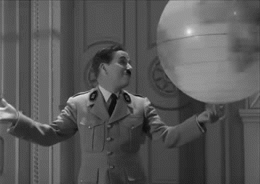
It’s darkly beautiful, in and out of context. And eventually, the inflatable globe pops, which makes this even more poignant. Meanwhile, in the ghetto, the Barber is doing his best Bugs Bunny impression and cutting hair to a classical music piece (Brahms’ Hungarian Dance No. 5). Bugs did the whole Barber of Seville routine WAY after this in Rabbit of Seville in 1950. One of the best Bugs Bunny shorts ever.
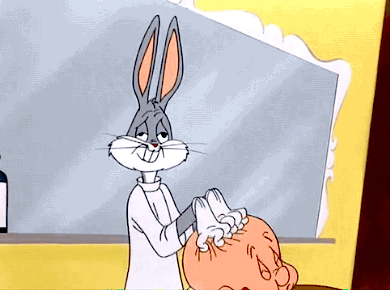
Back in the palace, bad news arrives. Epstein, the banker, has refused to give Hynkel any money, as he’s Jewish, and is protesting against the persecution of his people in the ghetto. Hynkel immediately decides to double down on his attacks on the ghettos, which he calls on Schultz to perform. But he refuses, noting that the persecution of an innocent people will only serve to demoralize the entire country. Hynkel sends Schultz to a concentration camp as a result, and proceeds on his path.
In the ghetto, people have been doing OK, as the stormtroopers had been lightening up their attacks on the ghetto, to attempt to please Epstein to get more money. But no more of that. As Hannah and the Barber are about to go on a date, loudspeakers broadcast an angry speech from Hynkel, in fake German. And while it’s never translated...the reactions from the populus, Hannah, and the Barber, aren’t difficult to read. Hynkel just waged war on the ghetto and the Jews.

Well, will you look at that; a halfway point! Let’s stop here, then head into a Part Two. See you there!
#the great dictator#charlie chaplin#paulette goddard#jack oakie#henry daniell#reginald gardiner#billy gilbert#maurice mossovich#comedy april#user365#365 movie challenge#365 movies 365 days#365 Days 365 Movies#365 movies a year#365days365movies
2 notes
·
View notes
Text
April 4, 2021: The Great Dictator (1940)(Part Two)
I thought this film was more “Prince and the Pauper”.
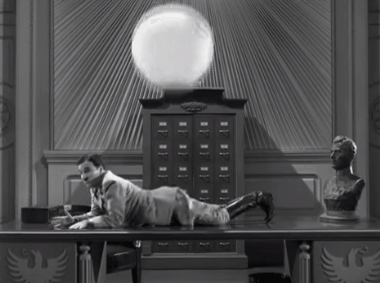
Not that I’m complaining AT ALL, mind you. It’s still a fantastic movie, and I’m having a wonderful time with it. As an early satire, I’m not surprised at how on the nose this is, but I am surprised on how on point it is. Gotta say, it predicted some events of the next 5 years that I don’t think anybody say coming.
I understand why this film is so well-loved, but as for it being a masterpiece...well, I know why that is as well, but that hasn’t happened yet. That’ll be coming at the end of this film, I know that much. So, until then, let’s keep going, full speed ahead! First part’s right here!
Recap (2/2)
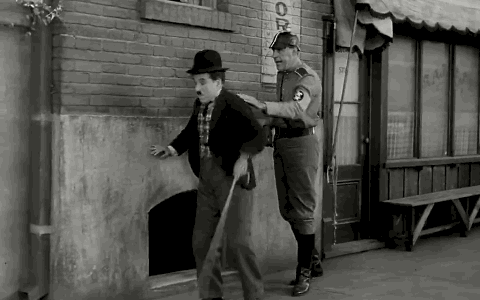
In an eerie forecast of the tragedies to come, the stormtroopers assault the ghetto and its people. However, still believing Schultz’ orders to be in place, they spare the Barber and his section of the ghetto. But the news quickly passes down, and the stormtroopers go for the Barber once and for all, destroying his shop. And as we hear the sound of breaking glass, and see the shop and the ghetto on fire...it’s eerie, is all I’m saying. Haunting.
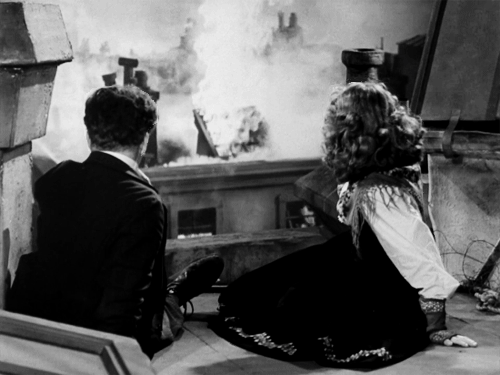
On the roof, Hannah and the Barber watch the shop burn. Hannah tries to convince the Barber to go with her to neighboring Osterlich, a free country where they can settle down and farm. They stay on the roof until nightfall, when they receive news that Schultz has escaped the camp, and his hiding down below. In a meeting with some of the men of the ghetto, the Barber included, he tries to convince the men that they must assassinate Hynkel.
However, one of them must die in the effort. Because he’s too well-known, Schultz can’t do it. Convenient, huh? The men use a complicated cake-based system to choose. There are coins baked in the cakes, and whoever gets the coin is chosen assassin. In the process, the Barber eats three of them. It’s very funny. Turns out EVERYBODY had a coin, which was executed by Hannah to convince the group that this is a terrible idea. They agree, and retire for the evening.
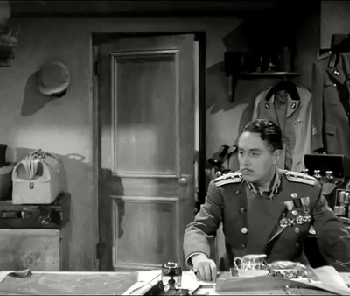
Fellow villager Mr. Mann (Bernard Gorcey), comes to warn them the next morning about the stormtroopers, who suspect that Schultz is there in the ghetto. They go to warn him, and attempt to hide him on the roof. But that quickly fails, and both Schultz and the Barber are arrested and sent to a concentration camp. Meanwhile, Hannah and some of the other residents flee to Osterlitz, where life is far better and quieter.
But not for long, as Hynkel announces to his inner cabinet that they will soon be ready to march on Osterlich, which they’ve been planning for a while. And they aren’t the only ones! Neighboring country Bacteria, led by Benzino Napaloni (Jack Oakie), is also intending to invade Bacteria. In response, Hynkel declares war on Bacteria as well. This is IMMEDIATELY preceding a phone call, during which they invite him to see their military might. War is also undeclared by Hynkel.
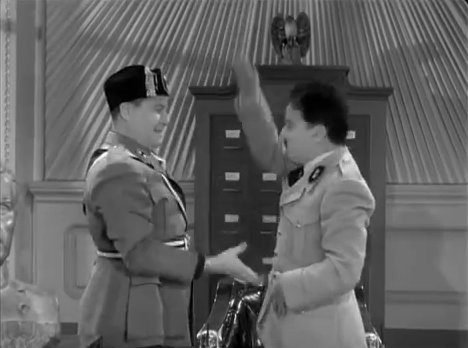
Napaloni, a rotund dictator who comes in on a train and speaks in pseudo-Italian (YUP), arrives there with his wife, Madame Napaloni (Grace Hayle), and Hynkel gives the two a welcome to the country. Also, WOW, didn’t realize that that shitty stereotypical fake Italian accent that people still put on when joking (which is pretty offensive, in and of itself) was THAT OLD. It was in Duck Soup, too!
Anyway, they plan to psychologically manipulate him into doing what they want him to do, which immediately fails. The two decide upon getting a quick cut at the palace’s barber shop, and compete with each other using the chairs there. After this, they witness a show of Tomania’s military might, and it’s all...it’s all very funny, even given the goddamn CONTEXT.
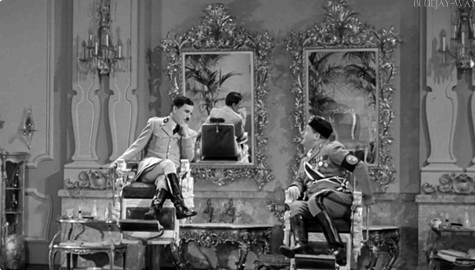
That night, there’s a grand dinner and ball, and the two dictators finally come head-to-head when disputing who will invade Austerlich. This leads to an argument, and that eventually leads to both of them eating too much “English mustard”, which is quite spicy, and then just turns into a straight-up food fight. ut eventually, Hynkel decides to sign a treaty that will cause Napolini to take his troops off the border. This will allow Hynkel to break the conditions of that treaty and invade, without losing a man. The next day, this is exactly what he does, disguising the invasion as armed guards watching him as he goes duck hunting on the border.
At the same time, Schultz and the Barber have escaped, having stolen guard uniforms from the camp. Guards from the camp are looking for them, and find HYNKEL, who’s fallen out of his boat while duck hunting. Mistaking him for the Barber, they knock him out and drag him to the camp! The Barber, meanwhile, is being mistaken for Hynkel, and they meet the troops at the Osterlich border who’ve been waiting for Hynkel to arrive to begin the invasion. Schultz, realizing what’s going on, tells the Barber to go along with the whole thing, and the troops assault the country and its people, including Hannah and Mr. Jaeckel.
Eventually, the Barber winds up on stage, and must speak to the people in a live broadcast, or be caught alongside Schultz. And he does. And...well...it’s the most iconic scene in the film. And arguably, the greatest speech in all of film.
youtube
Chaplin resisted speaking in his films for so long. For SO LONG, he resisted delivering intent through words rather than actions. And so, when he finally does so...he excels. This is an absolutely beautiful speech. It’s painfully relevant, and the best speech I’ve ever seen in a film. And...there’s no need for anything else, really. Hannah hears the speech as well, the last part of which is addressed to her, directing her to look up, into the light of hope. And to her friends and fellow Jews, she simply says...
Listen.
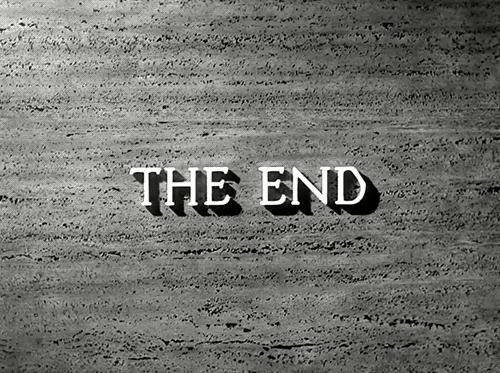
See you in the Review.
#the great dictator#charlie chaplin#paulette goddard#jack oakie#henry daniell#reginald gardiner#billy gilbert#maurice mossovich#comedy april#user365#365days365movies#365 movie challenge#365 movies 365 days#365 Days 365 Movies#365 movies a year
0 notes